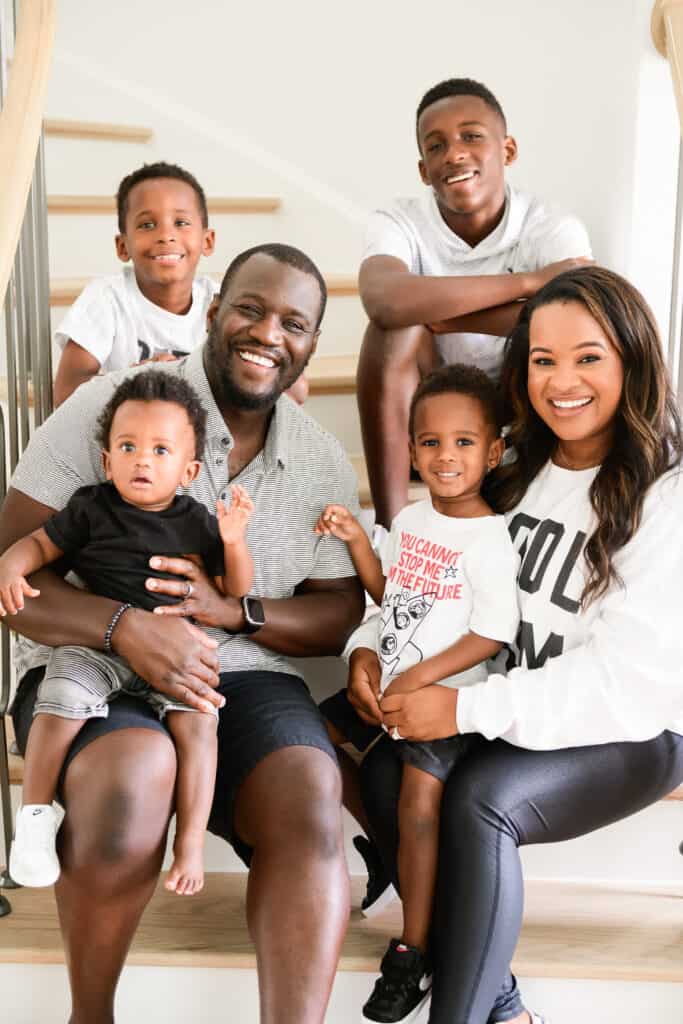Budgeting Tips for Beginners

Creating a budget has been the most crucial part of the improvement of our finances. We operated for many years without a budget. Honestly, it had me having anxiety about opening up our bank account in the morning. Not having a budget is operating without a plan. And working without a plan also makes it more challenging to reach your goals. I am speaking from experience; for a period in our life, we weren’t hitting our financial goals and were stagnant in life. Finally, Rick and I made the conscious decision to commit to improving our finances.
Our first step was to assess our mess, as I say it. Next, we look at our current financial situation. Then, we pulled our credit reports, gathered our bank statements and bills. After this step, we logged everything to have an accurate understanding of where we were. According to Market Watch 50% of Americans are living paycheck to paycheck, and no emergency fund.
I wanted to give a starting point for you that are starting to think about budgeting. I know it can be overwhelming and wanted to summarize it if you have been a bit lost.
Why start a budget?
As Dave Ramsey states you must tell every dollar where to go. After not doing that for years, I quickly realized how important this action was. Budgeting allows you to plan how to spend your finances, create financial goals, and plan for your future.
What to do first?
Add up your monthly income – Take a look at all the income that you and your partner (if applicable) bring in each month. This should include your paycheck, tips, commissions, side hustle income, child support—any additional money that your receive that would be deemed as income.
List out necessary expenses – Include housing (rent, mortgage, HOA fees), utilities (electricity, water, gas, internet), groceries, debt payments, taxes, insurance, saving for your emergency fund, mobile phone, and anything else that would be deemed as expenses.
Identify the ‘extra’ expenses – These are the discretionary expense. Which I know are the ones that will add up. Such as – eating out, movies, subscriptions, hair, kids activities.
Assess your ratio – Once you have pulled all your income together, and tallied up your expenses. You can deduct your expenses from your income to get how much you have left over. If you have money left over that is great! That will enable you to put money towards saving or paying off debt (if applicable). Alternatively, if you have done this and found that your expenses is more than your input, then that will be eye opening that changes will have to be made. Which budgeting will help with this.
Budgeting methods
Zero-Sum Budget:
A zero-sum budget is a strategy that requires you to “spend” every dollar you earn by treating your savings and investments like all your other monthly bills — meaning you “pay” yourself every month, no matter what. We got this from Dave Ramsey. This is actually the budget method that we use.
Cash-Based Budget
Cash-Based Budget is using allotted cash only to do your spending rather than swiping your card. This is also known as Dave Ramsey’s envelope method. Note: You will still have to create a budget to operate this method. Once you have created a budget, you will pull cash out for every category. Keep the money in envelopes and pay everything in cash. It is crucial that you don’t swipe your card during this time, as it defeats the purpose of the envelope method. This is an excellent option for someone that is overspending in categories. It forces you only to spend the cash you have available.
50/30/20 Budget:
This is a great option if you don’t want to track each expense. This is pretty simple 50% goes towards essentials, 30% goes to wants, 20% goes to savings and debt. It only requires you to track and divide by category rather than each expense.
Bare-Bones Budget:
A bare-bones budget covers only the necessities to make it through to the next payday. This would include housing, food, utilities, car insurance, gas, and any other critical monthly bills. You make your budget and cut out anything that is not 100% necessary for that month. Restaurants, shopping, entertainment would not be included in expenses. If you think this is extreme….you are right. Rick and I did this very early on in our financial recovery. When we wanted to jump-start our financial journey, it was not for us to do long term. But, it helped us see an immediate burst of resources left over. A great option if you’ve had a financial hardship or just starting.
There are more methods, but these are the methods I have either used or the most popular for people budgeting.

Budgeting Tools
There are so many ways that you can create a budget. The biggest thing to remember is your budget has to intergrate in your life seemlessly in order to stay consistent with budgeting. Find the budgeting tool that best fits your needs. Here are few ways to start budget:
- Pen and Paper
- Apps
- Google Sheets or Excel
- Planner
I have resources above to help make starting your budgeting journey.
Set your goals
Once you have created your budget, it is crucial to set some financial goals. Starting the budget was half the battle; now that you are taking steps to control your budget, it is time to progress. Based on the money we have left over each pay period, we set savings and debt pay-off goals.
Family Business Meeting
I am sure you are wondering when you will discuss how to work through your budgeting. We bi-weekly have a family business that we set aside to talk about finances, life operations, and schedules. This is a scheduled time that you and your partner can discuss your family operations. For a significant portion of the meeting, we spend time discussing our budget. I recommend reviewing your budget weekly. Assess where you are in each category and what needs to be adjusted. Then, we analyze the areas that we are overspending and hold each other accountable.
I know I type this out like it is the simplest task. However, I know that budgeting is difficult to get the hang of, and takes a tremendous amount of discipline. Remember you are human, if you had a bad month that you didn’t land under your budgeted amount don’t give up. The first few months, was the toughest learning how to live with a budget. Also, remember if you fall off course, it is never to late to start back, and get focused with budgeting.
Friendly reminder – It is always okay to skip a sale. This was a message I had to learn quickly when learning discipline and budgeting successfully.


Have something to say?